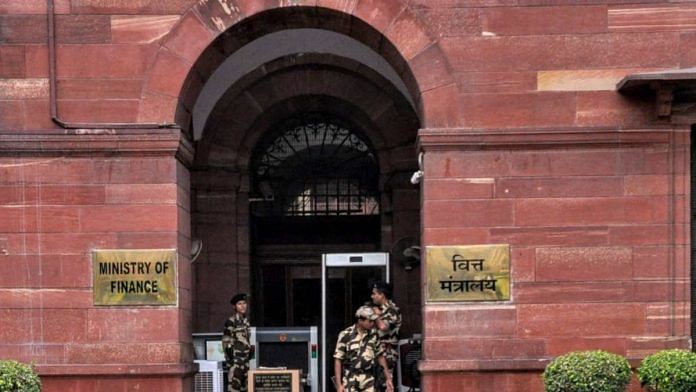New Delhi: The Narendra Modi government is bracing for a tough, second round of equity stake dilution in the two listed state-owned general insurance companies in the next fiscal, after dodging the process last year due to the pandemic.
The firms — New India Assurance Company and General Insurance Corporation of India or GIC Re — were listed in November 2017 and October 2017, respectively. According to Securities Exchange Board of India (SEBI) norms, promoters of firms need to ensure a minimum public shareholding of 25 per cent within three years of listing.
To comply with the minimum public shareholding norm, the Centre — which owns 85.44 per cent stake in New India Assurance and 85.78 per cent in GIC Re as of 31 December — had to further dilute 10 per cent of its equity in these two firms last year.
However, the pandemic saw the capital markets regulator offering a brief respite to firms to comply with the minimum shareholding norms, waiving the penalties for a few months.
Now, the government needs to complete the second round of stake dilution.
“Last year, the equity dilution process was delayed due to Covid-19. But the government has to go through with the process this year,” said a finance ministry official who did not wish to be identified.
But getting a good valuation will be a challenge, the official added.
ThePrint reached the Ministry of Finance spokesperson by email for a comment but there was no response until the time of publishing this report.
Also read: Modi govt has ‘clear and transparent’ disinvestment policy, says Anurag Thakur
Share prices big challenge
The government’s second stake dilution in these insurance firms is unlikely to be an easy process.
For one, both General Insurance Corporation and New India Assurance listed at a substantial discount to the issue price of Rs 912 and Rs 800, respectively, in 2017. Even after taking into account stock splits and bonus issues, these shares are currently trading at half their initial price at present.
On Monday, GIC closed at Rs 209.30 apiece and New India at Rs 163.00 on the Bombay Stock Exchange. These prices are nearly 50 per cent lower than the levels in 2017.
Both the firms were profitable as of December end, data with the stock exchange shows.
However, despite this, the share performance of these two insurance companies has been subdued and in line with the low valuations of other similar public sector enterprises. Be it state-owned banks or other central public sector enterprises, they all lag their private sector peers in valuations despite having a relatively larger size compared to their private sector counterparts.
In comparison, the stock price of privately-owned ICICI Lombard General Insurance Company, which listed in September 2017, has more than doubled since listing. It closed at Rs 1,469.20 Monday.
The benchmark Sensex has risen by more than 50 per cent since October 2017.
“ICICI Lombard always had a good private management. In comparison, the dominance of the nationalist legacy and presence of active trade unions has stymied the performance of state owned insurance companies like New India and GIC. But even then, New India is profitable and efficient as compared to the other state-owned general insurance companies,” said a former top official in a private sector firm.
One of the other factors that comes into play against the state-owned firms is the bureaucratic way in which trainings are done in organisations, said the official who has also worked in the public sector.
LIC holding the bag
Moreover, at the time of the listing, both the state-owned firms’ IPOs were bailed out by government-owned Life Insurance Corporation of India (LIC).
LIC picked up an 8.66 per cent stake in the GIC initial public offer (IPO). The shareholding pattern shows that LIC has not sold or bought even one share in GIC in the last three and a half years.
Similarly, New India’s shareholding pattern as of 30 September 2020 shows that LIC had an 8.67 per cent stake in the firm and hadn’t bought or sold even one share since its initial listing.
Given that LIC’s previous investments in the two stocks are in the red and it has not even sold one share of its initial purchase, India’s largest insurance firm may not be part of this round of equity dilution, said sources in the finance ministry.
Which insurance company is picked up for a strategic stake sale also remains to be seen, they added.
Finance Minister Nirmala Sitharaman had announced in her budget that the government will privatise one state owned general insurance company in 2021-22.
(Edited by Amit Upadhyaya)
Also read: ‘Drastic changes’ to monetary policy framework could upset bond market, says Raghuram Rajan



